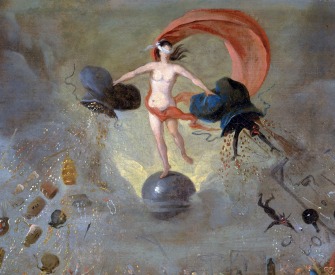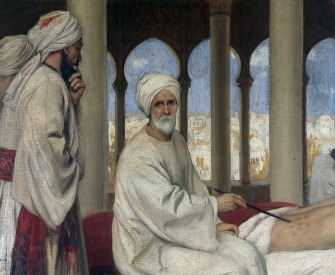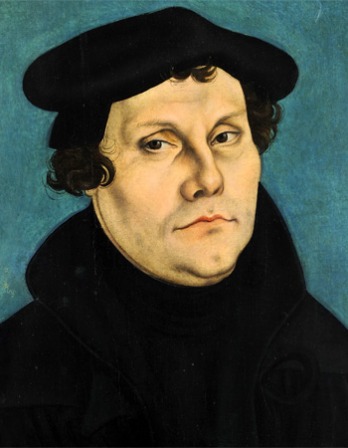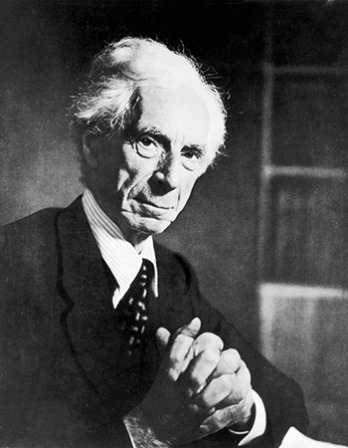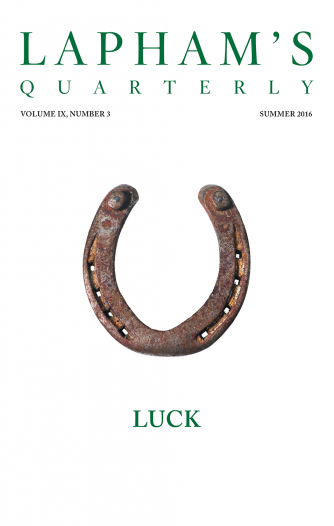I must now carry my thoughts back to the abominable things I did in those days, the sins of the flesh which defiled my soul. I do this, my God, not because I love those sins, but so that I may love you. For love of your love I shall retrace my wicked ways. The memory is bitter, but it will help me to savor your sweetness, the sweetness that does not deceive but brings real joy and never fails. For love of your love I shall retrieve myself from the havoc of disruption which tore me to pieces when I turned away from you, whom alone I should have sought, and lost myself instead on many a different quest. For as I grew to manhood, I was inflamed with desire for a surfeit of hell’s pleasures. Foolhardy as I was, I ran wild with lust that was manifold and rank. In your eyes my beauty vanished and I was foul to the core, yet I was pleased with my own condition and anxious to be pleasing in the eyes of men.
I cared for nothing but to love and be loved. But my love went beyond the affection of one mind for another, beyond the arc of the bright beam of friendship. Bodily desire, like a morass, and adolescent sex welling up within me exuded mists which clouded over and obscured my heart, so that I could not distinguish the clear light of true love from the murk of lust. Love and lust together seethed within me. In my tender youth they swept me away over the precipice of my body’s appetites and plunged me in the whirlpool of sin. More and more I angered you, unawares. For I had been deafened by the clank of my chains, the fetters of the death which was my due to punish the pride in my soul. I strayed still farther from you and you did not restrain me. I was tossed and spilled, floundering in the broiling sea of my fornication, and you said no word. How long it was before I learned that you were my true joy! You were silent then, and I went on my way, farther and farther from you, proud in my distress and restless in fatigue, sowing more and more seeds whose only crop was grief.
Was there no one to lull my distress, to turn the fleeting beauty of these newfound attractions to good purpose and set up a goal for their charms, so that the high tide of my youth might have rolled in upon the shore of marriage? The surge might have been calmed and contented by the procreation of children, which is the purpose of marriage, as your law prescribes, O Lord. By this means you form the offspring of our fallen nature, and with a gentle hand you prune back the thorns that have no place in your paradise. For your almighty power is not far from us, even when we are far from you. Or, again, I might have listened more attentively to your voice from the clouds, saying of those who marry that they will “meet with outward distress, but I leave you your freedom”; that “a man does well to abstain from all commerce with women,” and that “he who is unmarried is concerned with God’s claim, asking how he is to please God; whereas the married man is concerned with the world’s claim, asking how he is to please his wife.” These were the words to which I should have listened with more care, and if I had made myself a “eunuch for love of the kingdom of heaven,” I should have awaited your embrace with all the greater joy.
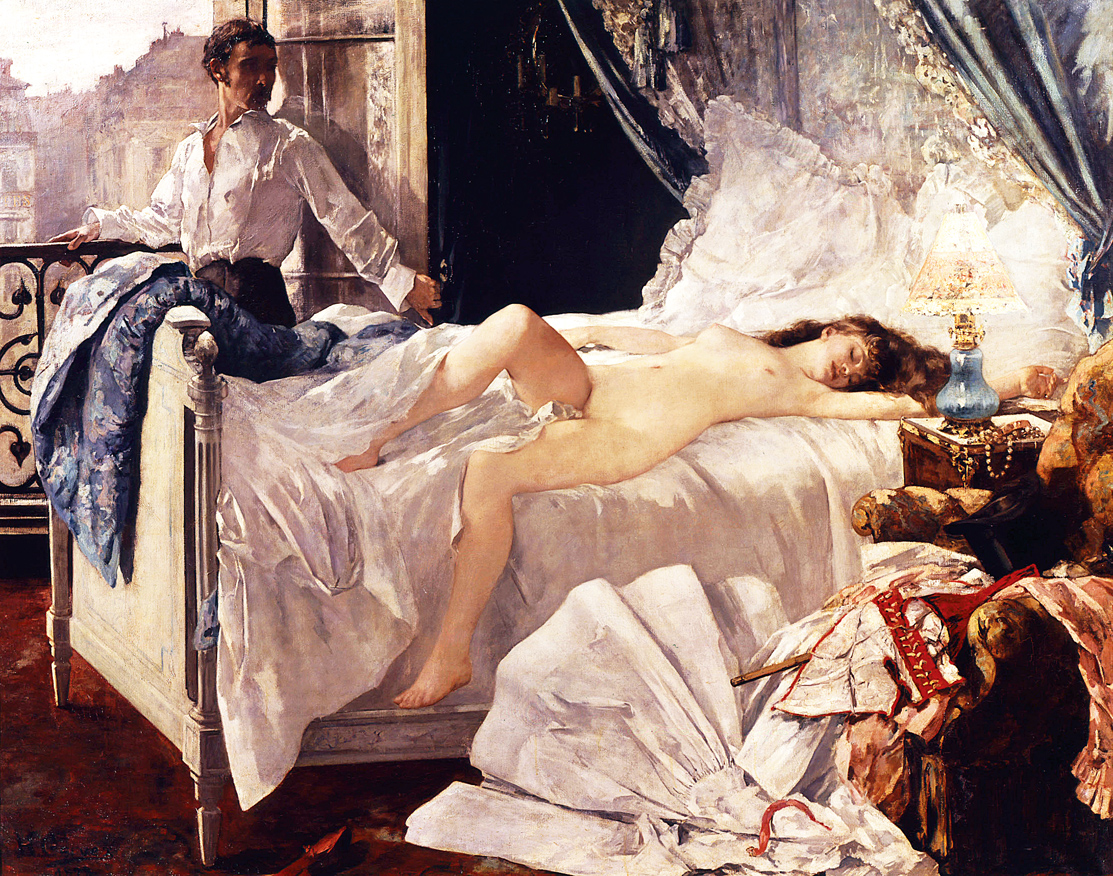
Rolla, by Henri Gervex, 1878. Musée des Beaux-Arts Bordeaux, France.
But, instead, I was in a ferment of wickedness. I deserted you and allowed myself to be carried away by the sweep of the tide. I broke all your lawful bounds and did not escape your lash. For what man can escape it? You were always present, angry and merciful at once, strewing the pangs of bitterness over all my lawless pleasures to lead me on to look for others unallied with pain. You meant me to find them nowhere but in yourself, O Lord, for you teach us by inflicting pain, you smite so that you may heal, and you kill us so that we may not die away from you. Where was I then and how far was I banished from the bliss of your house in that sixteenth year of my life? This was the age at which the frenzy gripped me and I surrendered myself entirely to lust, which your law forbids but human hearts are not ashamed to sanction.
During my sixteenth year, the narrow means of my family obliged me to leave school and live idly at home with my parents. The brambles of lust grew high above my head and there was no one to root them out, certainly not my father. One day at the public baths he saw the signs of active virility coming to life in me and this was enough to make him relish the thought of having grandchildren. He was happy to tell my mother about it, for his happiness was due to the intoxication which causes the world to forget you, its Creator, and to love the things you have created instead of loving you, because the world is drunk with the invisible wine of its own perverted, earthbound will. But in my mother’s heart you had already begun to build your temple and laid the foundations of your holy dwelling, while my father was still a catechumen and a new one at that. So, in her piety, she became alarmed and apprehensive, and although I had not yet been baptized, she began to dread that I might follow in the crooked path of those who do not keep their eyes on you but turn their backs instead.
How presumptuous it was of me to say that you were silent, my God, when I drifted farther and farther away from you! Can it be true that you said nothing to me at that time? Surely the words which rang in my ears, spoken by your faithful servant, my mother, could have come from none but you? Yet none of them sank into my heart to make me do as you said. I well remember what her wishes were and how she most earnestly warned me not to commit fornication and above all not to seduce any man’s wife. It all seemed womanish advice to me and I should have blushed to accept it. Yet the words were yours, though I did not know it. I thought that you were silent and that she was speaking, but all the while you were speaking to me through her, and when I disregarded her, your handmaid, I was disregarding you, though I was both her son and your servant. But I did this unawares and continued headlong on my way. I was blind to the truth that among my companions I was ashamed to be less dissolute than they were. For I heard them bragging of their depravity, and the greater the sin the more they gloried in it, so that I took pleasure in the same vices not only for the enjoyment of what I did, but also for the applause I won.
From Confessions. Augustine as an adolescent was sent to Carthage in 370 to study rhetoric. He soon took a mistress and fathered a son. Converting to Christianity in 387, he became the bishop of Hippo in 396. Among the most influential Christian philosophers and theologians, he wrote on average one three-hundred-page book per year for forty years, including Confessions and City of God.
Back to Issue


